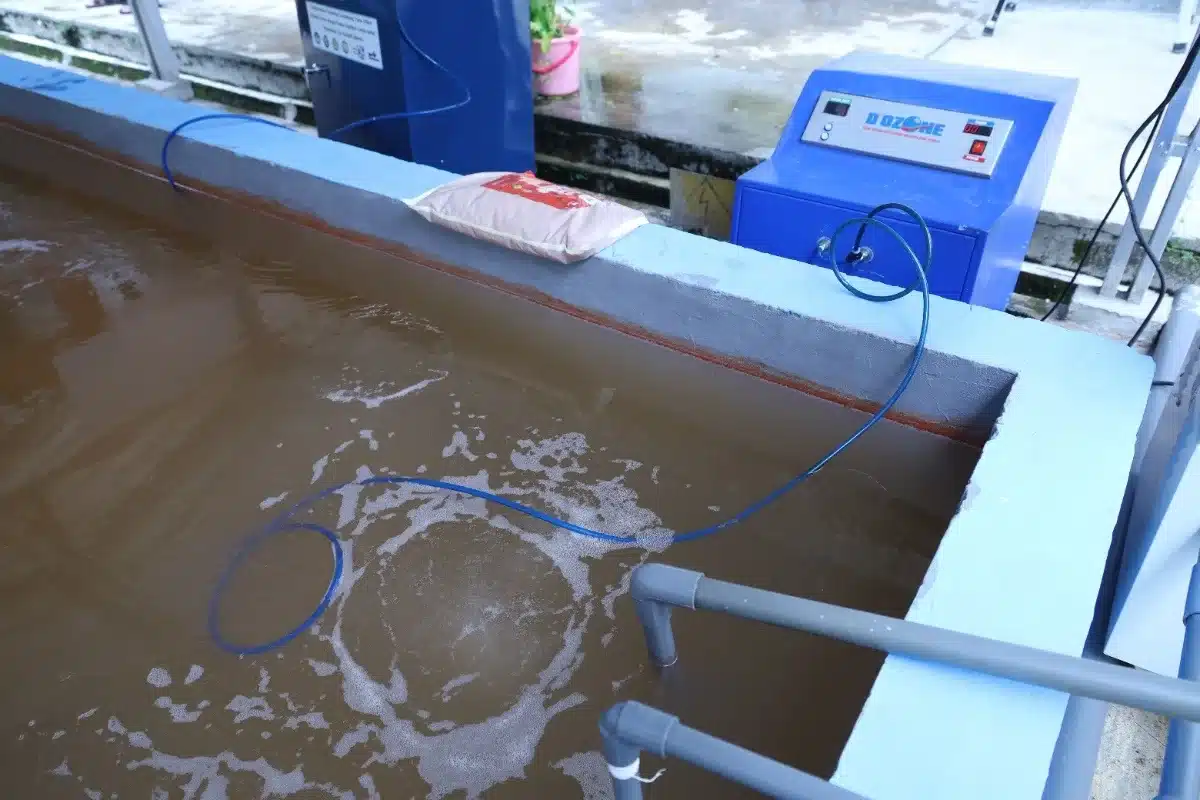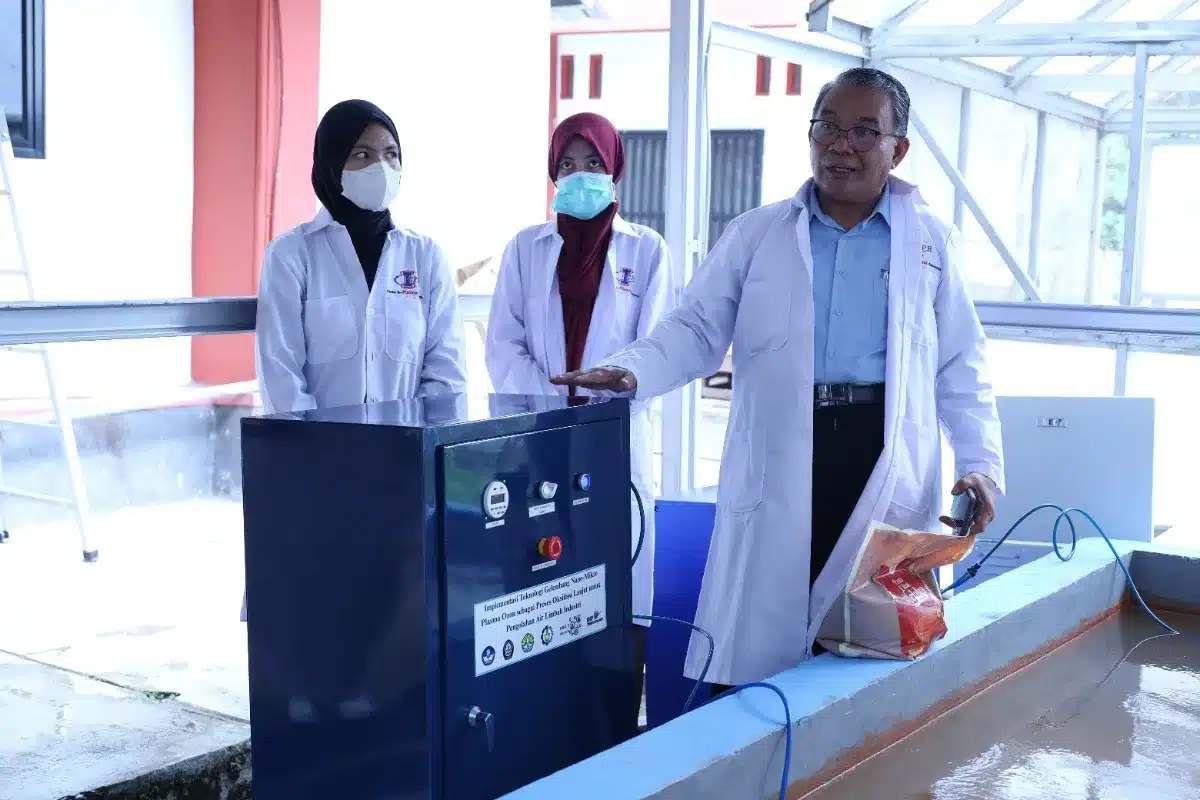UNDIP, Semarang (October 24, 2025) – A physics expert and professor at the Faculty of Science and Mathematics, Universitas Diponegoro (UNDIP), Prof. Dr. Muhammad Nur, DEA, has developed a groundbreaking study titled “Implementation of Nano-Micro Plasma Ozone Bubble Technology as an Advanced Oxidation Process for Industrial Wastewater Treatment.” The research has reached industrial-scale application, transforming wastewater into reusable, hygienic water for daily sanitation. This project is funded by the Indonesian Ministry of Research and Technology under the Impactful Consortium Research Program (Riset Konsorsium Unggulan Berdampak / RIKUB) scheme.
The research, part of the RIKUB program, involves a collaboration among three universities: Universitas Diponegoro, Universitas Riau, and Institut Teknologi Sepuluh Nopember (ITS). Prof. Muhammad Nur stated,
“Currently, Universitas Diponegoro is the leading developer of Nano-Micro Plasma Ozone Bubble technology. In producing a high-capacity ozone generator (125 grams/hour), we collaborate with PT Dipo Technology. In this trial, the researchers utilized wastewater from a chili paste processing factory,” he explained.
In the study, the UNDIP research team used a 5-cubic-meter tank filled with water and added 10 kilograms of chili paste to simulate industrial food waste. The wastewater was then treated using Nano-Micro Plasma Ozone bubbles, triggering an advanced oxidation process that broke down pollutant chains—including the spicy compounds from the chili. The result was hygienic water suitable for general daily use.
“The ultimate goal of this research is to reach a point where the treated water is safe for drinking, although we are still far from that stage. Nevertheless, the water we’ve produced is already suitable for daily sanitation needs,” Prof. Nur added.
Beyond wastewater treatment, Prof. Muhammad Nur also supports local farmers and has established a cooperative called Berkah Abadi Jaya. The cooperative oversees about 1,200 hectares of cultivated farmland, with chili harvests that are often abundant and even exceed market demand. “Through a collaboration between the Berkah Abadi Jaya Cooperative, the Batubara Regency Government (Sumatera Utara), and the Ministry of Cooperatives, a chili paste processing factory began operations in October 2024. This factory also applies Nano-Micro Plasma Ozone Bubble technology to remove pesticide residues from chili raw materials and has a 15-ton storage capacity. The Ministry has expressed strong interest in the six key pillars continuously promoted by Prof. Nur and his colleagues—community (farmers), commodity (chili), mentors (experts), technology, cooperatives, and youth engagement,” he explained.
In wastewater treatment, Prof. Nur’s current research focuses on food-industry wastewater at UNDIP, plastic-industry wastewater at ITS, and palm-oil-processing wastewater at UNRI. The research is expected to continue into the following year. He hopes various food industries can adopt this technology, as it is considered more efficient and cost-effective for wastewater management. (Public Communication/ UNDIP/ Syahra, ed. Ut)











